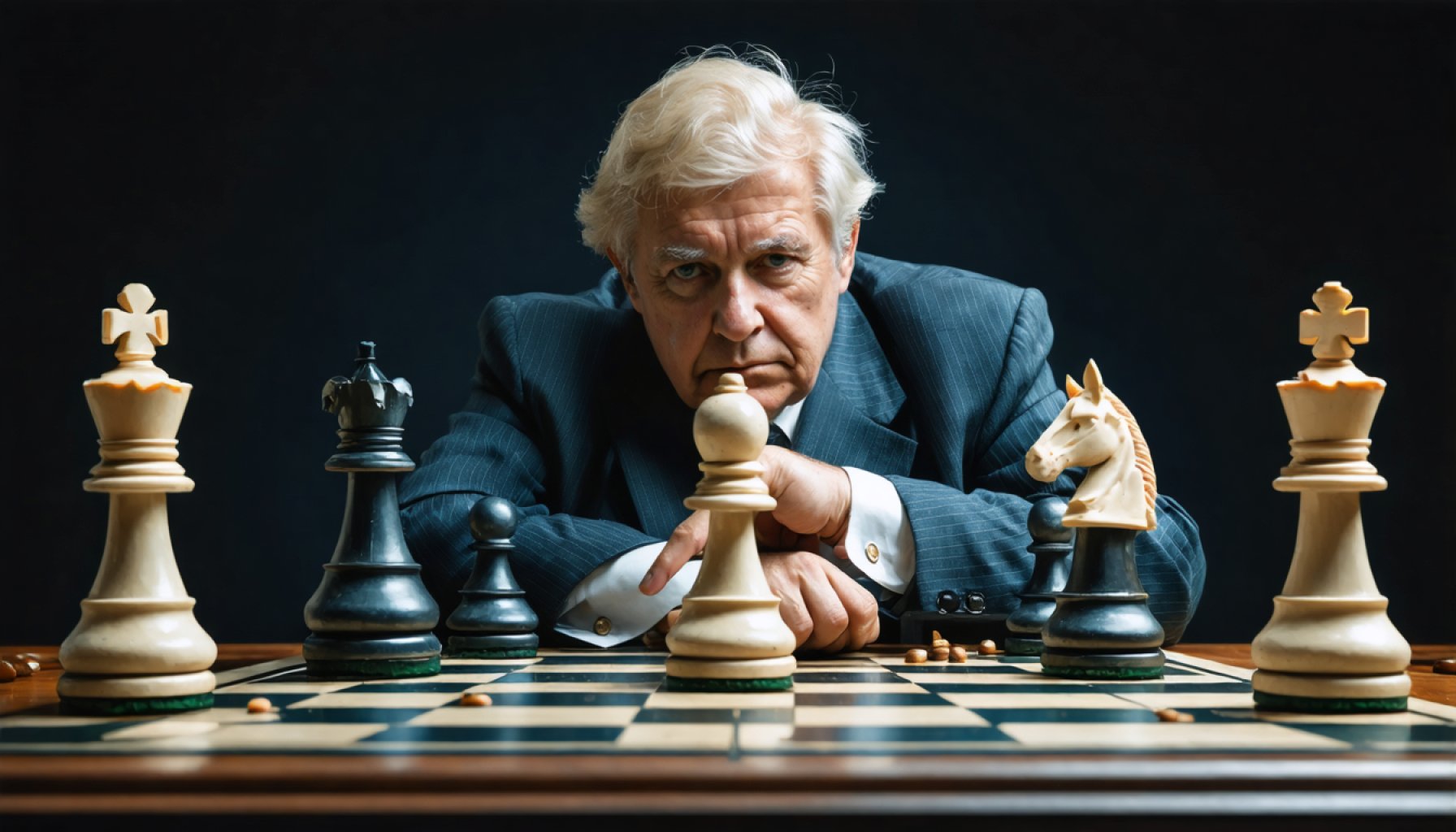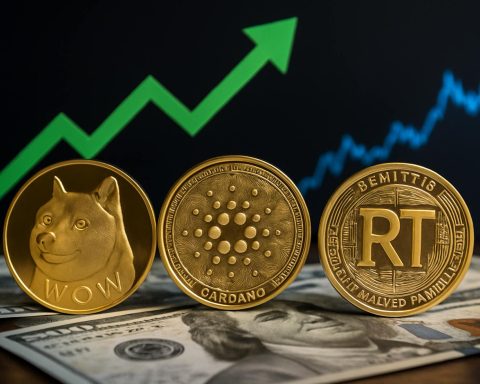- Boris Spassky, a renowned Russian grandmaster, is best known for his 1972 “Match of the Century” against Bobby Fischer.
- The match intertwined Spassky’s legacy with Cold War geopolitics, making it a symbolic event beyond chess.
- Spassky was seen as a national symbol, although he identified primarily as a chess player.
- Even after a stroke in 2010, Spassky remained dignified, highlighting his resilience.
- The 1992 rematch with Fischer briefly reignited global interest in their iconic duel.
- Spassky’s death at 88 serves as a reminder of an era when chess mirrored geopolitical tensions.
- His legacy is marked by humility and sportsmanship despite immense pressure.
The twilight years of Boris Spassky passed quietly, obscured by the shadows of a chess battle that enthralled the world. This Russian grandmaster, a giant in his own right, is best remembered across the globe as the player who faced Bobby Fischer in the 1972 “Match of the Century.” The match not only captivated the imaginations of chess enthusiasts but intertwined Spassky’s fate irrevocably with Cold War geopolitics.
As he breathed his last in Moscow at age 88, the world remembered Spassky not just for his prowess on the chessboard but for his dignity in an era when champions were seen as symbols of national prestige. Though hailed for an illustrious career, his legacy remained tethered to that Icelandic summer, where he became an unwilling player in a geopolitical contest.
In an era dominated by the deep ideological divide between the Soviet Union and America, this match took on significance beyond the 64 squares of the chessboard. Viewed under the lens of suspenseful diplomacy, the players appeared less as individuals, more as representations of their respective countries—a perception Spassky was uncomfortable with. He saw himself foremost as a chess player, a sentiment echoed by his son, who reflected on his father’s quiet endurance amidst the diplomatic clamor.
After suffering a debilitating stroke in 2010, Spassky remained dignified and resilient, embodying the same grace with which he carried the pressures of his celebrated match. The rematch with Fischer in 1992, long after their heyday, reignited a flicker of the past’s fiery fascination, reminding a global audience of their storied encounter.
Spassky’s death resonates not just as the passing of a skilled player, but as a reminder of a time when chess was a proxy for larger struggles—where every move was scrutinized against a backdrop of international tension. Yet, in the annals of time, Spassky stands out for the humility and sportsmanship he maintained amid the pressure.
The takeaway: Spassky’s legacy lies not merely in his chess achievements but in representing grace under pressure, in a world watching for more than just the checkmate.
The Untold Legacy of Boris Spassky: More Than Just a Chess Champion
Overview of Boris Spassky’s Chess Legacy
Boris Spassky, renowned for his iconic face-off against Bobby Fischer in the 1972 “Match of the Century,” stands as a pivotal figure in chess history. However, his legacy extends beyond this singular match, unfolding a narrative rich with dedication, resilience, and grace.
Spassky’s Chess Prowess: Beyond 1972
World Chess Championship Journey: Before the famous 1972 match, Spassky had a celebrated career. He became the World Chess Champion in 1969 by defeating Tigran Petrosian. His strategic acumen and versatile playstyles contributed significantly to his success.
Contributions to Chess Theory: Spassky was not only a player but also contributed to chess theory, specifically in openings. His innovations in the King’s Gambit, Ruy López, and the English Opening added depth to the game’s strategic landscape.
Insights into His Life and Career
Personal Philosophy on Chess: Spassky viewed chess as an art form rather than just a competitive sport. This philosophy informed his playing style, characterized by creativity and adaptability, setting him apart as not just a player but also an artist of the game.
Rematch with Fischer in 1992: The largely underrated 1992 rematch with Fischer in Yugoslavia brought back the rivalry but further showcased Spassky’s enduring love for the game, irrespective of global political implications.
Real-World Use Cases and Industry Trends
Influence on Modern Chess Culture: Spassky’s sportsmanship and integrity continue to inspire new generations of players and are benchmark traits emphasized in chess coaching.
Current Relevance: The growing popularity of online chess platforms, like Chess.com and Lichess, benefits from the legacies of players like Spassky, who popularized the game on a global stage.
Controversies & Limitations
Cold War Symbolism: Spassky often found himself an unwilling participant in Cold War propaganda. The politicization of his matches sometimes overshadowed his personal achievements, highlighting the complex interplay between sports and politics.
Tutorials & Compatibility
Adapting His Style: For budding chess enthusiasts, studying Spassky’s games offers valuable lessons in adapting strategies to suit various opponents. Utilize chess engines like Stockfish to analyze his famous games for deeper understanding.
Pros & Cons Overview
Pros:
– Pioneering chess strategies still relevant today.
– An exemplary figure of grace under pressure.
– Helped popularize chess globally.
Cons:
– Achievements often overshadowed by political contexts.
– Late-career influenced by health issues, limiting potential contribution to the chess world.
Pressing Questions Answered
Why is the Spassky-Fischer match still relevant?
The 1972 match symbolizes the height of chess as a cultural and political phenomenon, reflecting the socio-political tensions of the era and the ability of chess to transcend sport.
What lessons can modern players learn from Spassky?
His adaptability, strategic innovation, and emphasis on sportsmanship provide valuable lessons across various competitive fields.
Actionable Recommendations
– Study Spassky’s Games: Improve your chess by analyzing his broader range of matches beyond the Fischer encounter.
– Develop Grace Under Pressure: Emulate Spassky’s composure in competitive settings, a trait that proves invaluable across disciplines.
– Explore Chess Openings: Diversify your opening repertoire inspired by Spassky’s innovative contributions.
Related Links
For platforms offering chess resources and community discussions, visit Chess.com and Lichess.
In conclusion, Boris Spassky’s life and career offer more than just a storied match against Fischer; they present an inspiring tale of perseverance, strategic brilliance, and enduring influence in the chess world.







